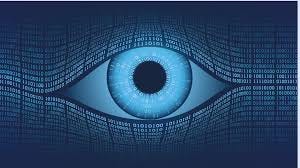"Stellar Wind" is the code name for a highly classified and controversial surveillance program conducted by the United States National Security Agency (NSA). The program was initiated in the early 2000s, shortly after the September 11, 2001, terrorist attacks, as part of the U.S. government's efforts to enhance its intelligence capabilities and prevent future terrorist threats.
Here are some key points about the Stellar Wind program:
Data Collection: Stellar Wind involved the collection of vast amounts of electronic communications data, including phone call records, email communications, and internet traffic. The program aimed to analyze this data for potential threats to national security.
Controversy: Stellar Wind became the subject of significant controversy due to concerns about its legality and its potential to infringe on the privacy rights of American citizens. The program's existence was not publicly disclosed until several years after its initiation.
Whistleblowers: Whistleblowers such as Thomas Drake, William Binney, and Edward Snowden played key roles in revealing the existence and extent of the Stellar Wind program. Their disclosures raised significant ethical, legal, and constitutional questions about government surveillance.
Legislation: In response to concerns about Stellar Wind and other surveillance programs, the U.S. government passed the USA PATRIOT Act and the Foreign Intelligence Surveillance Act (FISA) Amendments Act, which provided legal frameworks for some of these activities while also introducing oversight and safeguards.
Changes and Reforms: Over the years, there have been changes and reforms to U.S. surveillance programs, including restrictions on the bulk collection of certain types of data. The USA Freedom Act of 2015, for example, sought to limit the bulk collection of phone records.
Legacy: Stellar Wind remains a significant part of the history of post-9/11 surveillance and counterterrorism efforts in the United States. It continues to be a topic of debate and scrutiny regarding the balance between national security and civil liberties.
Initiation: Stellar Wind was initiated in the aftermath of the September 11, 2001, terrorist attacks on the United States. It was launched as a classified surveillance and data collection program with the primary goal of identifying and preventing potential terrorist threats to national security.
USA Freedom Act: In 2015, the USA Freedom Act was passed, which curtailed certain bulk data collection practices authorized under Section 215 of the USA PATRIOT Act. The Act also introduced measures to increase transparency and limit surveillance of U.S. citizens.
PRISM (United States): PRISM is a surveillance program operated by the U.S. National Security Agency (NSA) that allows the agency to collect data from major tech companies, including Google, Microsoft, and Facebook. It was disclosed by Edward Snowden in 2013.
XKeyscore (United States): XKeyscore is another NSA program revealed by Edward Snowden. It is a powerful tool that enables the agency to search and analyze vast amounts of internet data, including emails, online chats, and browsing histories.
Tempora (United Kingdom): Tempora is a British government surveillance program run by the Government Communications Headquarters (GCHQ). It involves the interception of internet communications, including emails and social media posts, and storing them for analysis.
Five Eyes (United States, United Kingdom, Canada, Australia, New Zealand): Five Eyes is an international intelligence alliance that involves the sharing of intelligence data among member countries, including the United States and the United Kingdom. It allows for the joint surveillance and analysis of global communications.
Echelon (International): Echelon was a global signals intelligence (SIGINT) collection and analysis network involving several countries, including the United States, United Kingdom, Canada, Australia, and New Zealand. While its existence was officially acknowledged, many details remain classified.
Carnivore/DSC1000 (United States): Carnivore, later renamed DSC1000, was a controversial FBI surveillance system designed for monitoring internet communications. It was used in the late 1990s and early 2000s.
Bulk Data Retention (Various Countries): Many countries around the world have implemented laws and programs for the bulk retention of telecommunications and internet data for national security and law enforcement purposes. The specifics of these programs vary from country to country.




